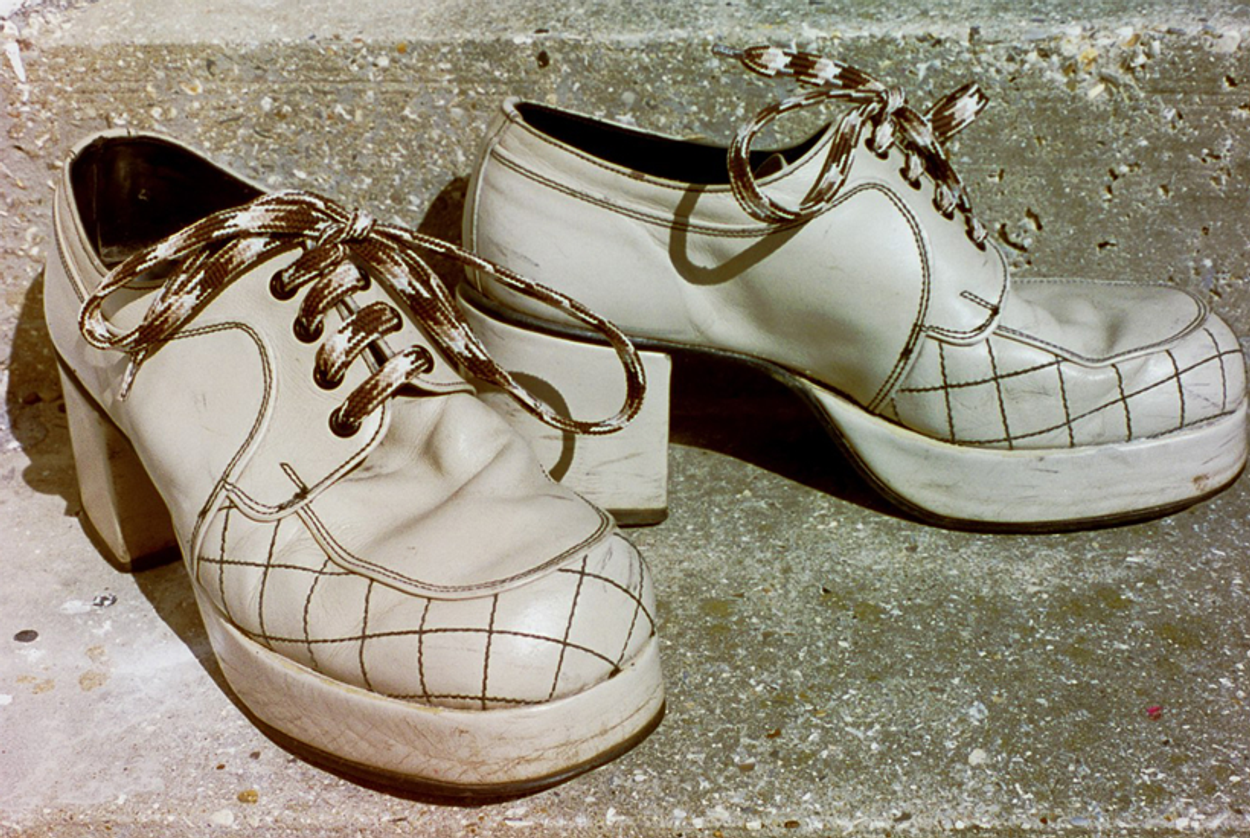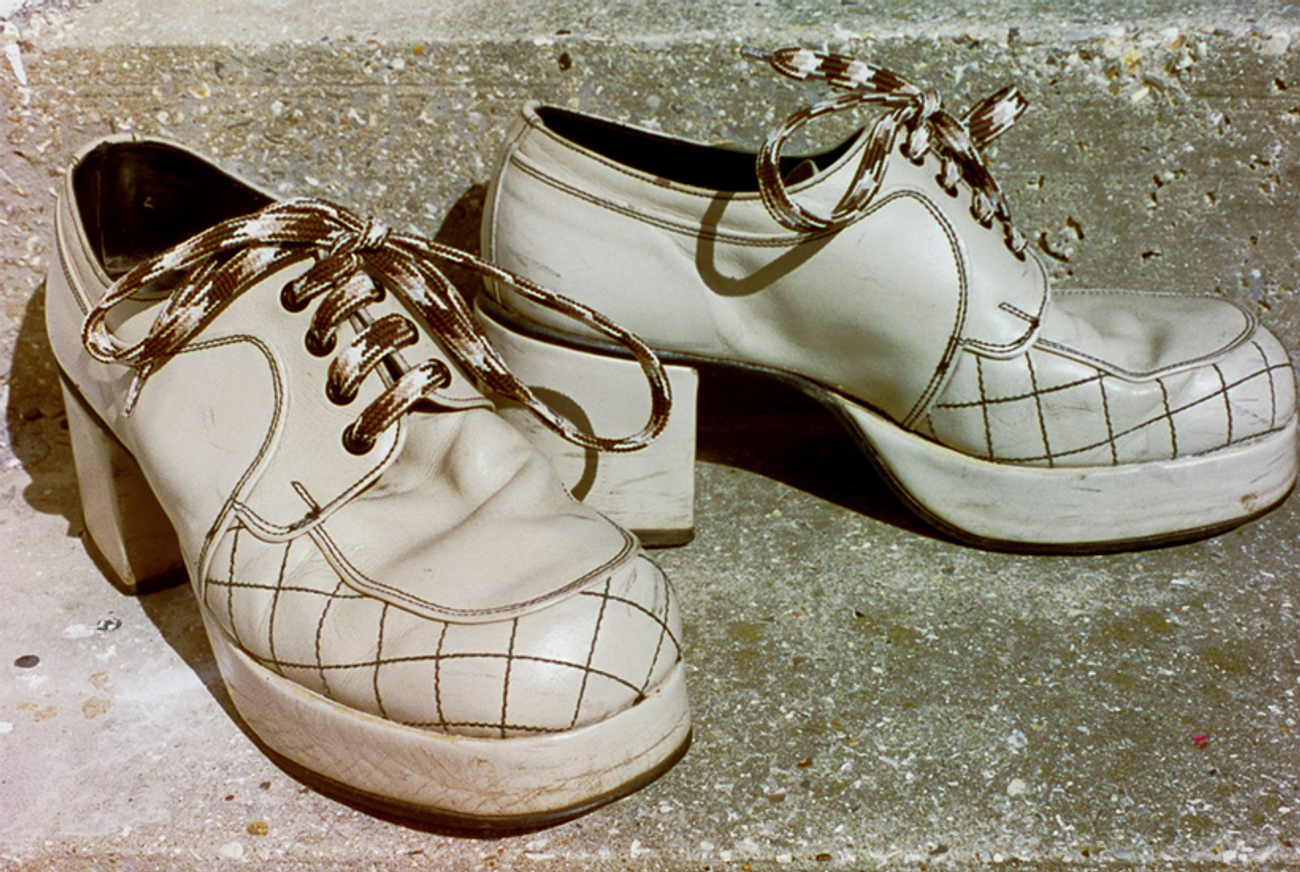Short Jewish Men, Don’t Sell Your Soles
A new shoe offers some extra height to Jews of shorter stature. But why prey on insecurities and stereotypes to sell footwear?




Self-hating, short Jewish men, take heart: A new company called Shoes by Jews aims to give short men a 3-inch boost using built-in lifts. Videos on the company’s website feature vignettes by short men: After buying the shoes, one customer can finally pick up women at bars; another customer aces a presentation at work simply because he is taller.
The problem is not only that these shoes look more like a cheap plastic laminate than full-grain leather, but that they help circulate the age-old idea that every Jewish man who isn’t Sandy Koufax or Paul Newman is more nebbish than he is man. And that’s a problem that padded footwear can’t fix: While it’s true that in general people respond to confidence, few things scream lack of confidence like packing three inches of foam into your shoes.
Male insecurities have long been a deep well of opportunity for the savvy innovator. From the standard male girdle, to Funkybod’s padded base layers for pectorally challenged men, to lewd products promising three more inches in another area, companies like Shoes by Jews essentially offer a way of tricking people into seeing us not as we really are.
I am shorter than most people I know; there was even a brief period in elementary school during which I was not-so-affectionately called “midget.” But by high school, when all my friends towered above me at heights between 5-foot-11 and 6-foot-4, my own size was hardly an issue beyond the struggle of finding clothes that fit well. My brothers and I (all 5-foot-6) have reached heights that our 5-foot-2 grandfather could literally never have dreamed of.
My main issue with Shoes by Jews is not that it has engineered a solution to an often real insecurity, but that it attempts to do so by using the stereotype of the useless, awkward Jewish male as a marketing crutch. There are obviously worse instances of ethnic stereotyping than the Annie Hall and Philip Roth portrait of neurotic American Jews, but people are genuinely surprised to learn that I exercise regularly and often forget to bring a sweater when it’s a little chilly out. Yes, I overthink everything and go to the doctor often, but it’s safe to say that I’ve never described my emotional state as verklempt.
It doesn’t help that now we have an entire product line aimed at boosting us both literally and figuratively. If we have trouble picking up women in bars and doing well in presentations, perhaps it is because we’re seen as a feckless race that needs to put inches worth of foam into our shoes. Which is to say, if you put platform shoes on your feet, you’re putting platform shoes on all our feet.
But if this cultural insecurity isn’t enough to coax us into buying their shoes, part of the Shoes by Jews marketing strategy is to inform potential customers that shorter men earn almost $800 a year less than their taller coworkers. I imagine the discrepancy has something to do with decreased work performance as a result of spending too much time online shopping for trinkets to address their insecurities. Shoes by Jews also points out that many women will not date men who are shorter than 6 feet tall; a study I’ve personally conducted has concluded that women who strictly enforce height requirements either work at Walt Disney World or are terrible human beings. Shoes by Jews is, all manner of puns intended, making a mountain of a molehill; could you picture James Dean, a mere 5-foot-7, fretting over his height? I can confirm that with the introduction of extra-small sizes at most stores, there’s hardly a downside to being short. In fact, in spite of the Randy Newman famous verse “short people got no reason to live,” last year the New York Times published an article suggesting that taller people were at greater risk of certain types of cancer.
As a member of Shoes by Jews’ target audience, I am not irked by their product because I firmly believe in the idea of “loving oneself.” Allow me to clarify: I do not nor have ever believed that a sane, introspective human being will feel perfectly content with oneself. Generations of shrinks have managed build careers on our philosophical hope that there’s more for us out there. But I resent the foolish suggestion that I would have found happiness just three inches away at 5-foot-9. Pascal wrote that man’s condition is always inconstancy, boredom, and anxiety. Am I really to believe that tall people are exempt from this rule? What can 5-foot-9 really offer, other than an increased risk of cancer?
As a collector of shoes that no rational person in my income bracket should lay hands on, I’ve learned that shoes are not meant to change or improve you but are meant instead to complete you. If I wear the same pair of black boots every day, it is because I feel most like myself when I am wearing them. This in mind, it becomes clear that the entire philosophy of Shoes by Jews is backward; these platform shoes are not only meant to change us, they are designed to make us least like ourselves. Nobody would ever take pleasure in buying expensive English shoes if their purpose were to estrange us from who we really are.
If you’re having so much trouble at work and with women, and struggle so much in general that you’ve turned to foam, then it may be wise to step back for a moment and remember that Jews have suffered fates far worse than being a little below the national height average. We’ve endured centuries of exile and genocide. For the first time, things now are at least sort of OK. The least we can do is stop being such nebbishes and enjoy what we have, even if it means sitting out a few rides at Disney.
***
Like this article? Sign up for our Daily Digest to get Tablet Magazine’s new content in your inbox each morning.
Alexander Aciman is a writer living in New York. His work has appeared in, among other publications, The New York Times, Vox, The Wall Street Journal, and The New Republic.
Alexander Aciman is a writer living in New York. His work has appeared in, among other publications, The New York Times, Vox, The Wall Street Journal, and The New Republic.